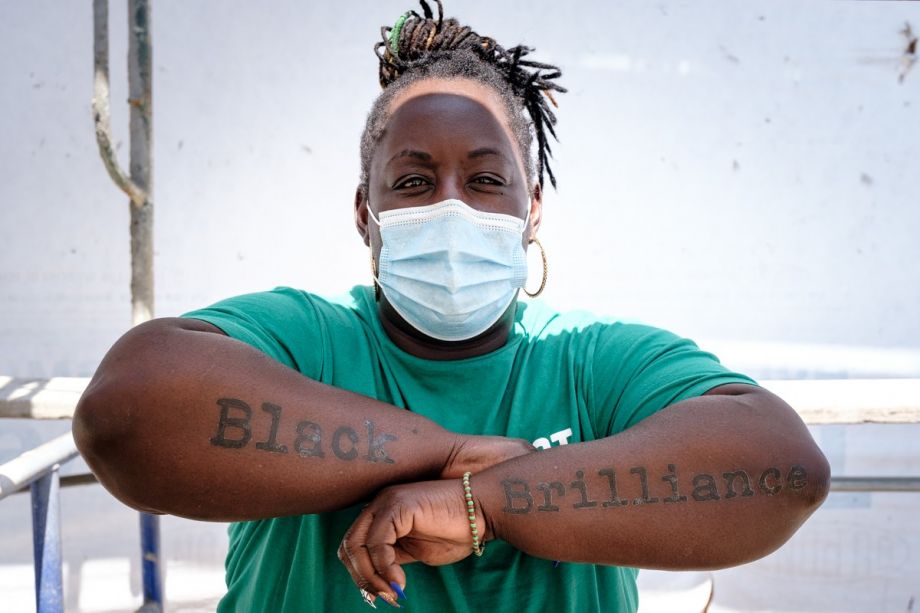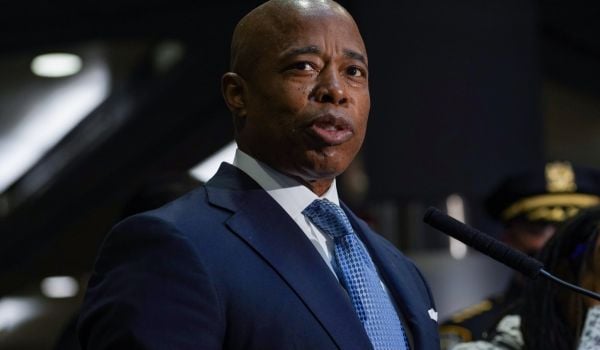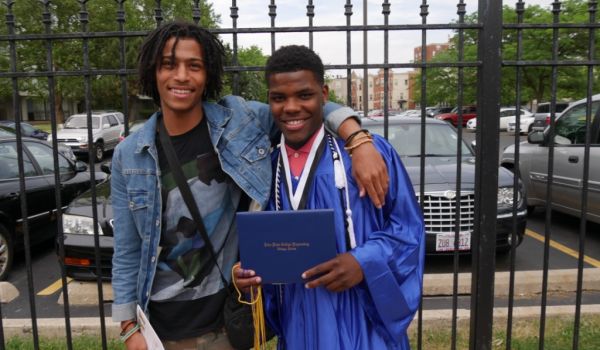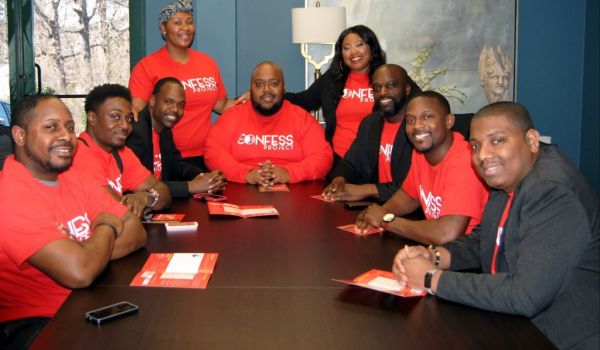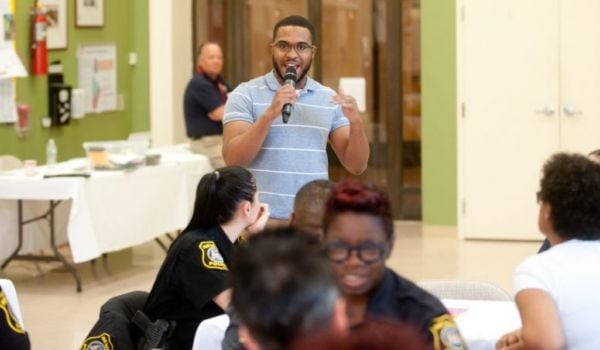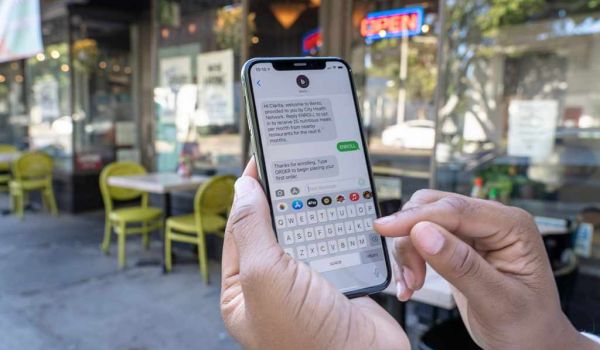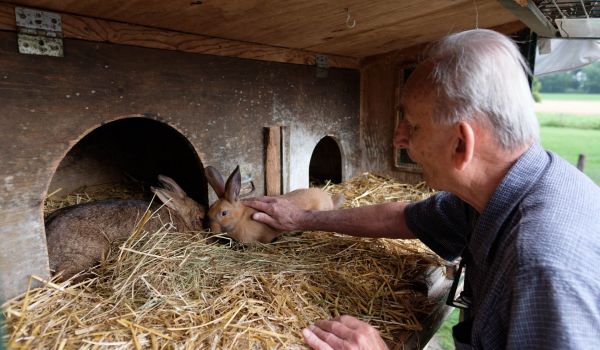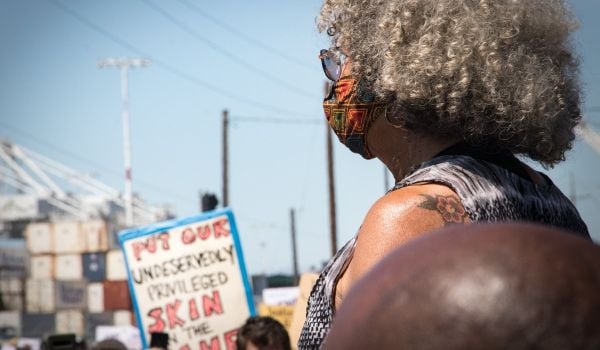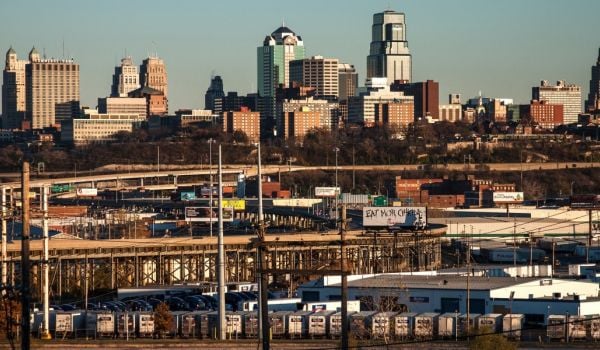On September 22, California Assemblymember Sydney Kamlager held a virtual press conference to call for passage of AB 2054 – also known as the CRISES Act — which would establish a statewide pilot to have community-based organizations serve as first responders to mental health crises instead of the police.
In late August, the bill, which was co-sponsored by 13 organizations and includes input from family members of individuals killed by police as well as experts in non-police responses to crises, passed both houses of the state legislature with bipartisan support. It still awaits the signature of Governor Gavin Newsom.
During the press conference, Assemblymember Kamlager pointed to a program that’s quickly found demand: MH First, which sends trained volunteers to respond to people having psychiatric emergencies or problems with substance use. MH First started as a pilot in Sacramento this January and expanded to Oakland by August. It’s run by Anti Police Terror Project (APTP), a coalition that has called for removing policing from mental health crises since its 2014 founding.
“We are running these programs on shoestring budgets and the generous hearts of volunteers because we’re tired of our community members dying,” APTP co-founder Cat Brooks said at the event. “A year ago it felt like we were screaming into the wind about needing these alternative responses … finally people are listening.”
Brooks told Next City that she and her APTP co-founder Asantewaa Boykin were in talks with Assemblymember Kamlager about a statewide bill like AB 2054 before the coalition launched MH First in Sacramento. “We knew that it was coming, we knew that it was a possibility, we knew it was what we were working towards,” she says. “We wanted to provide a model to show that communities are doing this already, now let’s invest in it.”
Boykin worked as a psychiatric nurse for over a decade and is now in emergency healthcare. Upon co-founding APTP, she was keenly aware of informal ways her community avoided calling 911 when someone had mental health needs, whether it be through safety plans or meal distribution.
The idea behind MH First was to give an individual going through a crisis a phone number to connect to a support network. “All MH First is is a framework based on community members taking care of each other, specifically in times of crisis,” she says.
Boykin and MH First staff developed training that APTP calls its Mental Health First Aid Handbook, loosely based on the Austrian program Mental Health First Aid. Boykin still felt that program leaned on clinical processes, like holding a person with mental health needs against their will and calling police as backup. Her goal was to create a framework in which a volunteer could assist a person undergoing a mental health crisis in creating a safety plan based on their own needs, as opposed to needs dictated by MH First or emergency responders.
The resulting handbook is wide ranging and provides a new lens to engage others around mental health. For one, people who need help are referred to as “participants,” not patients or clients, to underscore the importance of participating together in mitigating a mental health crisis.
The handbook includes basic first aid training, with the idea that physical health needs are often misinterpreted as mental health crises. It identifies conditional needs that could potentially be met to deescalate a situation, like helping a person access food or shelter. The handbook encourages mental health crises to be viewed through a “socially competent” lens, taking issues like the impacts of racism into account.
Some callers, Boykin knew, would just need space to be heard. While the majority of calls come from people speaking on behalf of themselves, MH First’s outreach resources also ask bystanders to call in situations with a person acting erratically that may bring police.
The program is volunteer-based partly for legal reasons. Good Samaritan laws protect a person providing care for another person under the scope of their knowledge. By not doing anything above their knowledge base — which includes the training MH First provides — volunteers are not held legally responsible if something happens on a call.
Though volunteering is open to all, MH First received interest from a surprising number of medical professionals. “It’s really a testament to our system having these large gaps, that folks who are passionate about medicine are showing up to volunteer,” Boykin notes. The Sacramento program launched in January with roughly 30 volunteers.
In the few months prior to COVID-19, volunteers worked in a three-person team. The “contact person” — ideally a person with lived experience who could empathize with participants — took calls. The second person, often a medical professional, handled in-person dispatches and went to the scene of the incident with the third person, known as the “safety liaison,” whose role was to interact with community members on site of a mental health crisis, as well as police.
The role of safety liaison was crucial, Boykin felt, because police are so interwoven in medical and emergency procedures. For that reason she had to be thoughtful of the volunteer and participant interaction from start to finish. Volunteers ask “are you safe?” as opposed to leading questions often used in emergency response, like “do you want to kill yourself?” or “do you want to hurt others?”
MH First always sent a dispatch if police were already on scene, on the way, or if participants reported they were unsafe. With the onset of COVID-19, dispatches are on pause while the free hotline remains operating. The team now arranges car services if participants need transportation.
The Sacramento team receives 30 to 40 calls a month, according to Boykin, and they found they are able to deescalate the majority of calls without police or emergency intervention. For one call, a young man knew he needed to get to a hospital but was afraid to call 911. The team arranged a car for him to get there.
APTP knew the model could expand after several hundred Oakland residents expressed interest in supporting a program there. “With the pandemic, it felt even more urgent,” says
Daniela Kantorová, a clinical psychologist, president of Psychologists for Social Responsibility and co-chair of APTP’s First Responders Team, which supports families impacted by police terror. Kantorová oversees the Oakland chapter with over 30 volunteers.
Given the pandemic, the team built out more advanced tech infrastructure, like ensuring all their documentation is electronic and HIPAA protected. The three-person team remains, with two people taking calls and the third person in a supportive consulting role. Without the dispatch component, they call emergency services as a last resort if they are unable to deescalate and other community alternatives are not available. The team is currently developing modifications to dispatch protocols that would allow dispatches during the pandemic.
Boykin says the MH First model is “adaptable to the conditions,” which has kept it going during COVID-19 and possible to quickly scale. And as questions intensify about the use of force against people with mental illness, she and Brooks have not only engaged state legislators but also city officials across California about expanding MH First chapters.
“The city of San Leandro came to us and said, ‘‘we don’t want Steven Taylor to die in vain, how do we bring MH First to San Leandro?’” Brooks recalls, referring to the police killing of Taylor inside a local Walmart.
They’ll seek expansion city by city until a statewide bill is passed. “MH First is an example of what we mean when we say defund the police,” Boykin says.

Emily Nonko is a social justice and solutions-oriented reporter based in Brooklyn, New York. She covers a range of topics for Next City, including arts and culture, housing, movement building and transit.
Follow Emily .(JavaScript must be enabled to view this email address)

